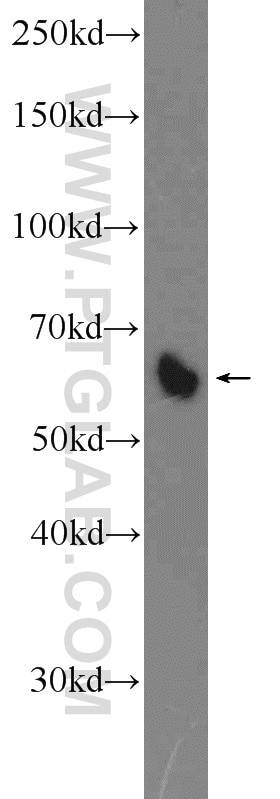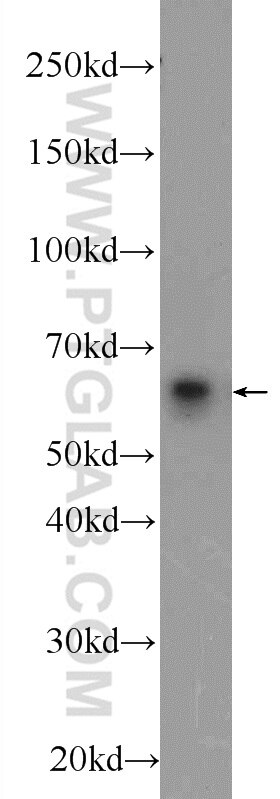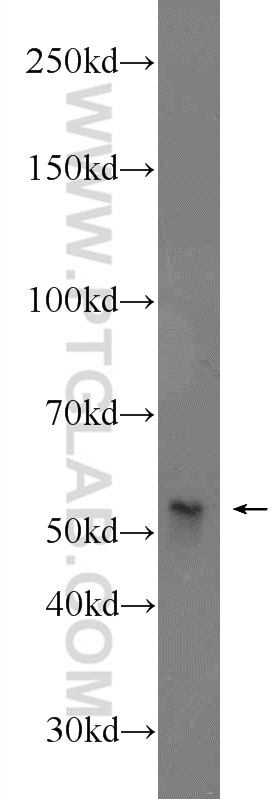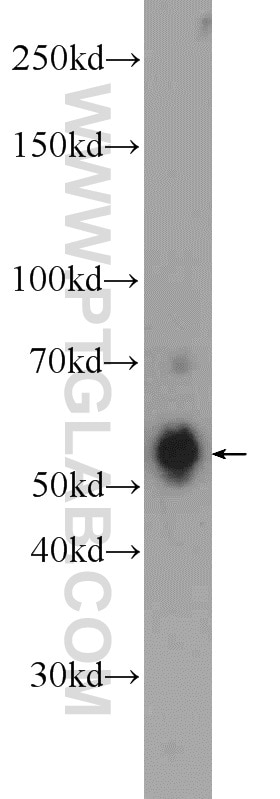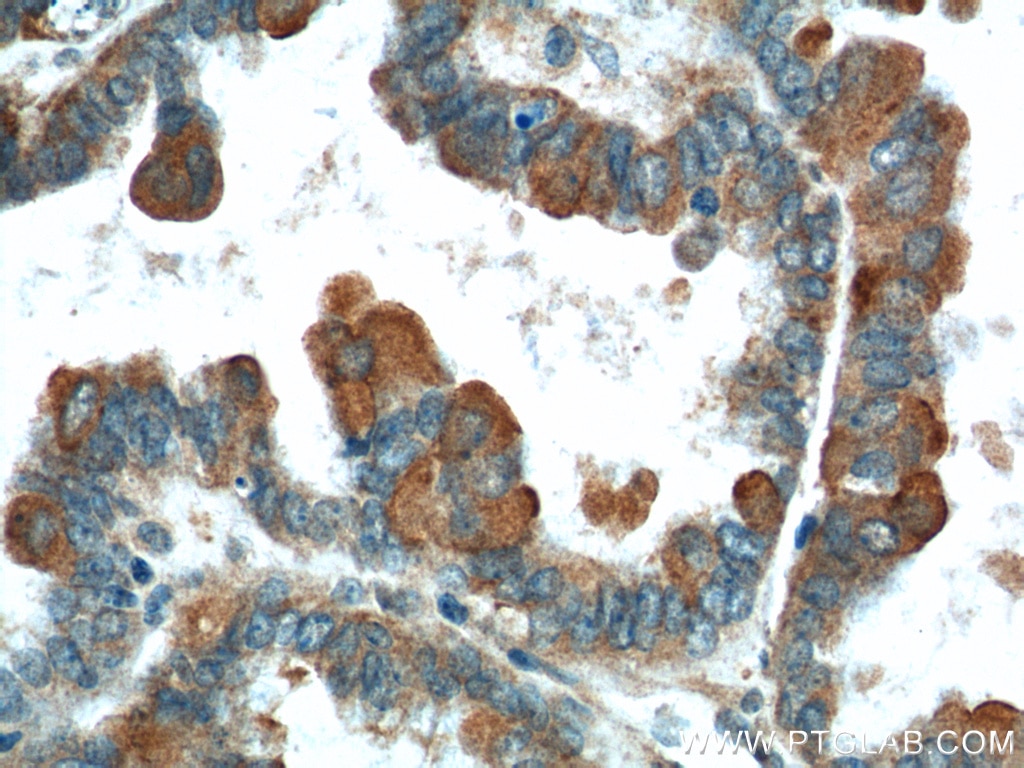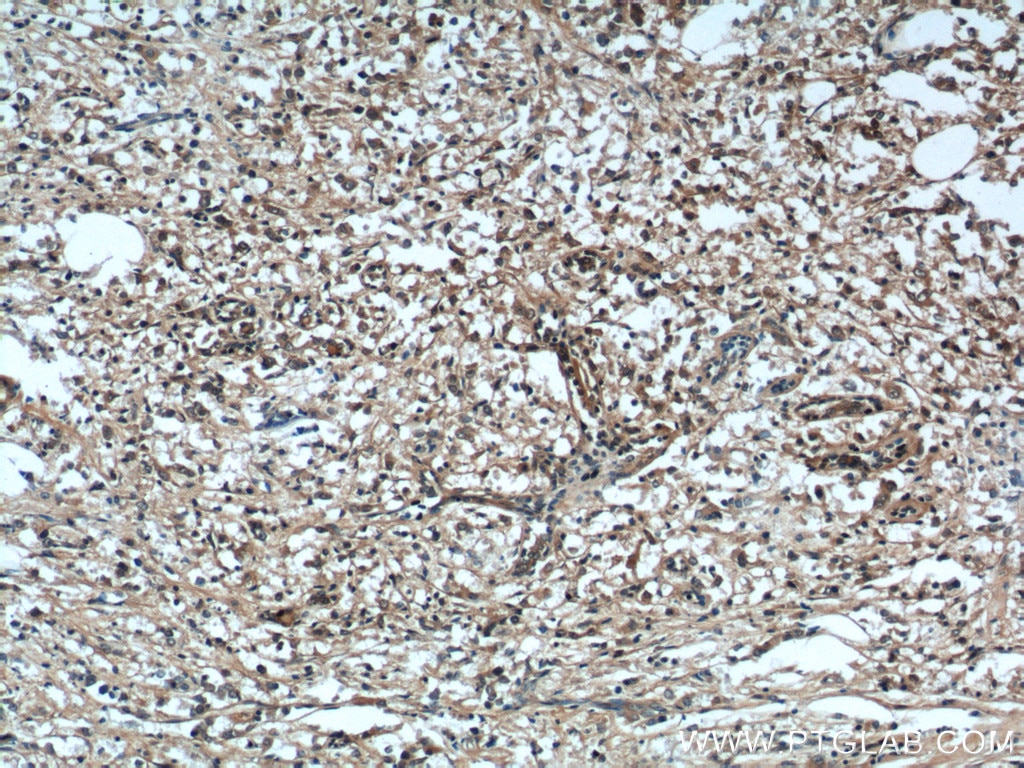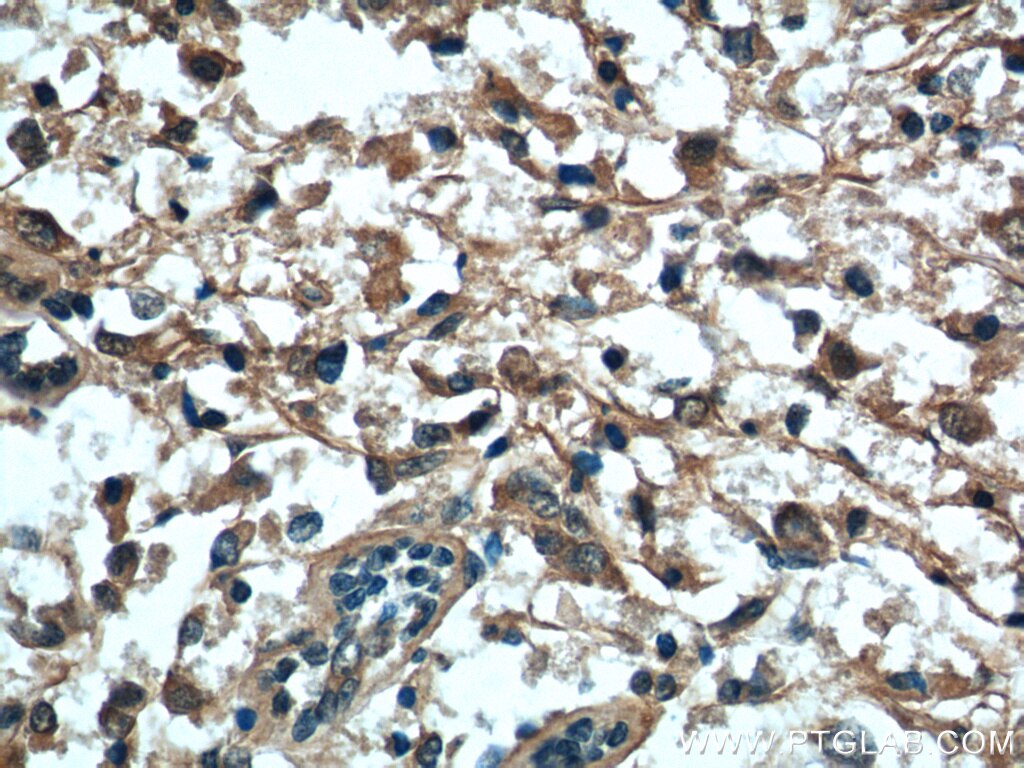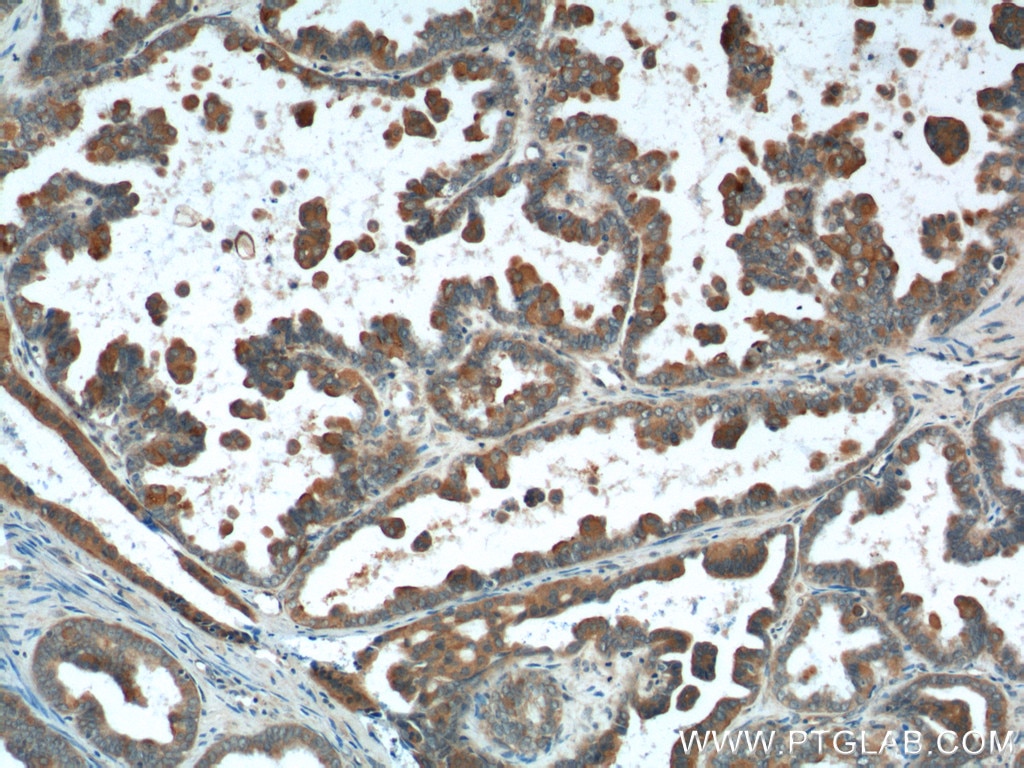B7‑H4 Polyclonal antibody
B7‑H4 Polyclonal Antibody for WB, IHC, ELISA
Host / Isotype
Rabbit / IgG
Reactivity
human, mouse, rat
Applications
WB, IHC, ELISA
Conjugate
Unconjugated
Cat no : 12080-1-AP
Synonyms
Validation Data Gallery
Tested Applications
| Positive WB detected in | mouse liver tissue, A549 cells, HeLa cells, rat liver tissue |
| Positive IHC detected in | human ovary tumor tissue, human breast cancer tissue Note: suggested antigen retrieval with TE buffer pH 9.0; (*) Alternatively, antigen retrieval may be performed with citrate buffer pH 6.0 |
Recommended dilution
| Application | Dilution |
|---|---|
| Western Blot (WB) | WB : 1:500-1:1000 |
| Immunohistochemistry (IHC) | IHC : 1:50-1:500 |
| It is recommended that this reagent should be titrated in each testing system to obtain optimal results. | |
| Sample-dependent, Check data in validation data gallery. | |
Published Applications
| WB | See 7 publications below |
| IHC | See 3 publications below |
Product Information
12080-1-AP targets B7‑H4 in WB, IHC, ELISA applications and shows reactivity with human, mouse, rat samples.
| Tested Reactivity | human, mouse, rat |
| Cited Reactivity | human, mouse |
| Host / Isotype | Rabbit / IgG |
| Class | Polyclonal |
| Type | Antibody |
| Immunogen | B7‑H4 fusion protein Ag2712 |
| Full Name | V-set domain containing T cell activation inhibitor 1 |
| Calculated Molecular Weight | 282 aa, 31 kDa |
| Observed Molecular Weight | 55-65 kDa |
| GenBank Accession Number | BC065717 |
| Gene Symbol | VTCN1 |
| Gene ID (NCBI) | 79679 |
| RRID | AB_2877822 |
| Conjugate | Unconjugated |
| Form | Liquid |
| Purification Method | Antigen affinity purification |
| Storage Buffer | PBS with 0.02% sodium azide and 50% glycerol pH 7.3. |
| Storage Conditions | Store at -20°C. Stable for one year after shipment. Aliquoting is unnecessary for -20oC storage. 20ul sizes contain 0.1% BSA. |
Background Information
B7‑H4 also named VTCN1, B7X, or B7S1 is a 282 amino acid protein, which contains 2 immunoglobulin-like domains and belongs to the immunoglobulin superfamily. B7‑H4 negatively regulates T-cell mediated immune response by inhibiting T-cell activation, proliferation, cytokine production and development of cytotoxicity. B7‑H4 is a single-pass type I membrane protein, which is over-expressed in breast, ovarian, endometrial, renal cell and non-small-cell lung cancers. The predicted molecular weight of B7‑H4 is 31 kDa. The glycosylated B7‑H4 is 50 to 80 kDa, and the non-glycosylated form is 28 kDa.
Protocols
| Product Specific Protocols | |
|---|---|
| WB protocol for B7‑H4 antibody 12080-1-AP | Download protocol |
| IHC protocol for B7‑H4 antibody 12080-1-AP | Download protocol |
| Standard Protocols | |
|---|---|
| Click here to view our Standard Protocols |
Publications
| Species | Application | Title |
|---|---|---|
Oncogene B7-H4 is increased in lung adenocarcinoma harboring EGFR-activating mutations and contributes to immunosuppression. | ||
J Virol RNASeq analysis of differentiated keratinocytes reveals a massive response to late events during human papillomavirus type 16 infection, including loss of epithelial barrier function. | ||
Cancer Lett Insulin-like growth factor-1 receptor induces immunosuppression in lung cancer by upregulating B7-H4 expression through the MEK/ERK signaling pathway. | ||
Dig Dis Sci Dysregulated B7H4/JAK2/STAT3 Pathway Involves in Hypertriglyceridemia Acute Pancreatitis and Is Attenuated by Baicalin. | ||
Oncol Lett Overexpression of B7-H4 promotes renal cell carcinoma progression by recruiting tumor-associated neutrophils via upregulation of CXCL8. | ||
J Oncol Alpha-Fetoprotein Regulates the Expression of Immune-Related Proteins through the NF-κB (P65) Pathway in Hepatocellular Carcinoma Cells. |
